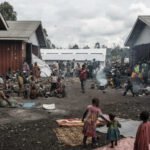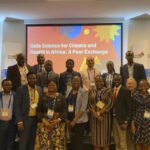As the people of Imo State, southeast Nigeria, get ready to elect a governor on 11 November, they must be reminded of the developmental needs of the state.
Development Diaries reports that there are about 2,419,922 registered voters expected to exercise their civic duty in the country’s southeastern state.
There are development challenges staring the people of the state in the face, even as politicians continue to promise hope.
Available data from the National Bureau of Statistics (NBS) indicates that as of the fourth quarter of 2020, the unemployment rate in the state stood at 57 percent.
This is despite the promise made by the government to create job opportunities for the people of the state.
The data suggests that Imo State has the highest unemployment rate in Nigeria, at 57 percent. This indicates that at least five of every ten people in the state who are of working age are unemployed.
According to the National Multidimensional Poverty Index (MPI) report released by the National Bureau of Statistics (NBS) in 2022, 41 percent of Imo State’s population is classified as living in multidimensional poverty when considering the dimensions of health, education, living standards, and work.
Using the NBS indicators, Imo is worse off than neigbouring Anambra and Abia, ranking third out of the five states in the southeast regarding the percentage of its people living in multidimensional poverty.
Furthermore, Dataphyte’s analysis of NBS data revealed that Imo State had the highest percentage of out-of-school children in the southeast in 2018, with 275,800 children not having access to education.
In the area of security, Imo State has been one of the southeast’s hotspots for insecurity.
A 2023 report by the Foundation for Partnership Initiatives in the Niger Delta (PIND) revealed that 400 deaths were recorded as a result of separatist agitation and counter-insurgent violence in Imo State between January 2019 and December 2021.
These are relevant concerns in the southeastern state that Imolites must consider when electing their governor.
The election process is more than just a competition between candidates; it is a critical occasion for the people of Imo State to decide on who will lead the state to development.
It is understandable that a lack of trust in the electoral process might lead to voter apathy; however, citizens are encouraged to come out and cast their votes, as it is a civic responsibility.
Voting allows citizens to have a say on important issues, policies, and a way to voice their concerns, values, and aspirations for a better society.
By participating in elections, citizens contribute to the collective decision-making process, ensuring that their views are represented and that the government remains accountable to the people.
Exercising one’s civic duty in an election is not merely a right but a fundamental responsibility that every citizen should embrace.
Development Diaries, therefore, calls on the people of Imo State to look out for leadership competence as they go to the polls. We also urge Ndi Imo to come out in their numbers and actively participate in the electoral process.
Photo source: King Mediashot








